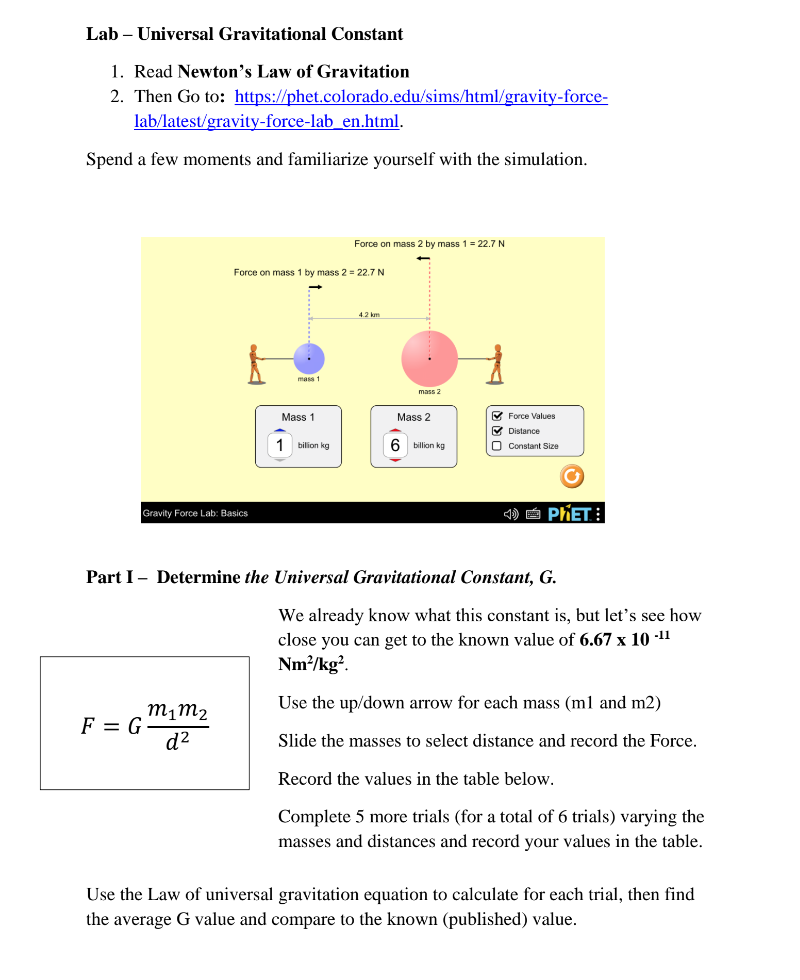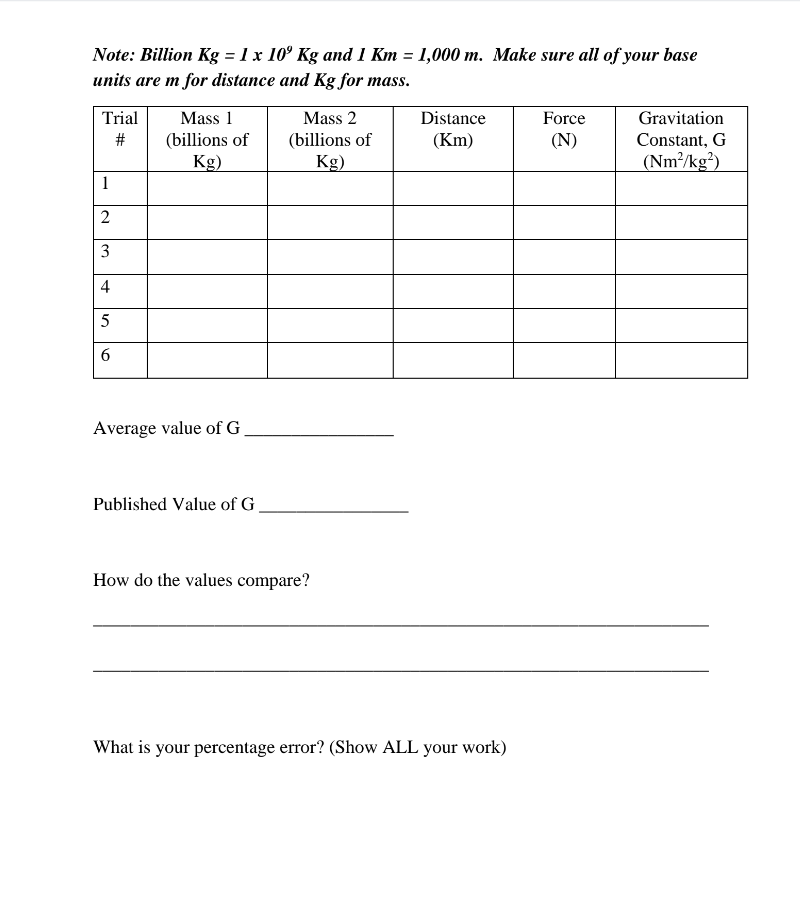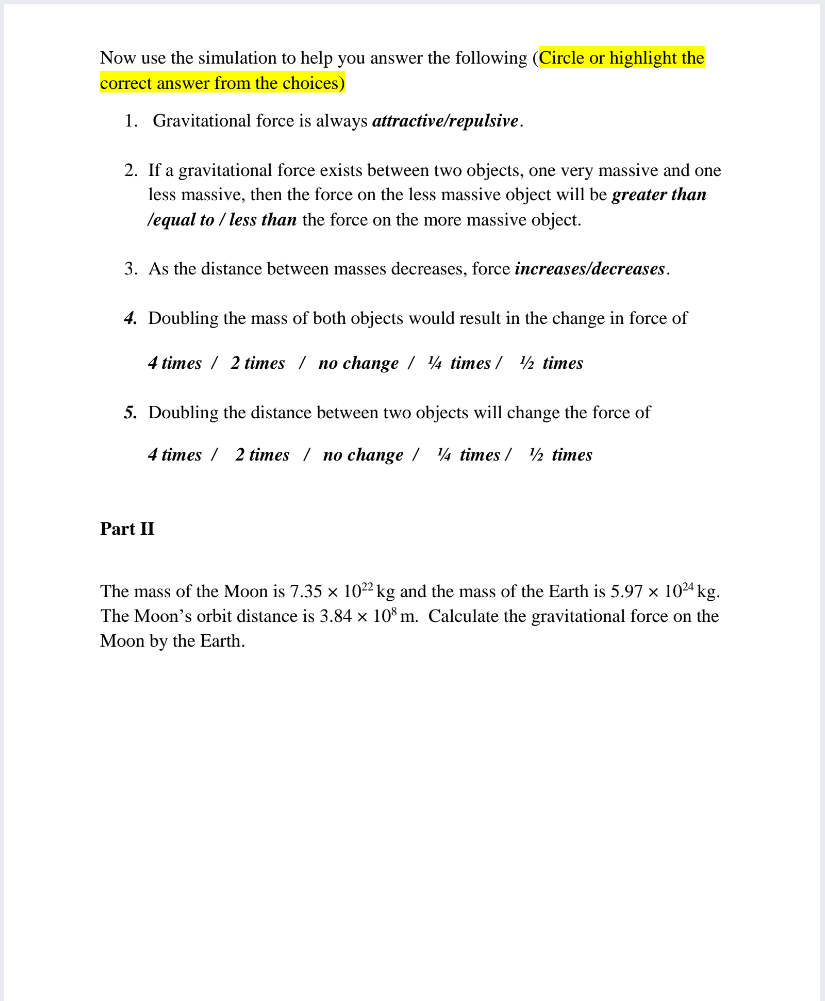Answered step by step
Verified Expert Solution
Question
1 Approved Answer
Lab - Universal Gravitational Constant 1. Read Newton's Law of Gravitation 2. Then Go to: https://phet.colorado.edu/sims/html/gravity-force- lab/latest/gravity-force-lab_en.html. Spend a few moments and familiarize yourself with






Step by Step Solution
There are 3 Steps involved in it
Step: 1

Get Instant Access to Expert-Tailored Solutions
See step-by-step solutions with expert insights and AI powered tools for academic success
Step: 2

Step: 3

Ace Your Homework with AI
Get the answers you need in no time with our AI-driven, step-by-step assistance
Get Started


